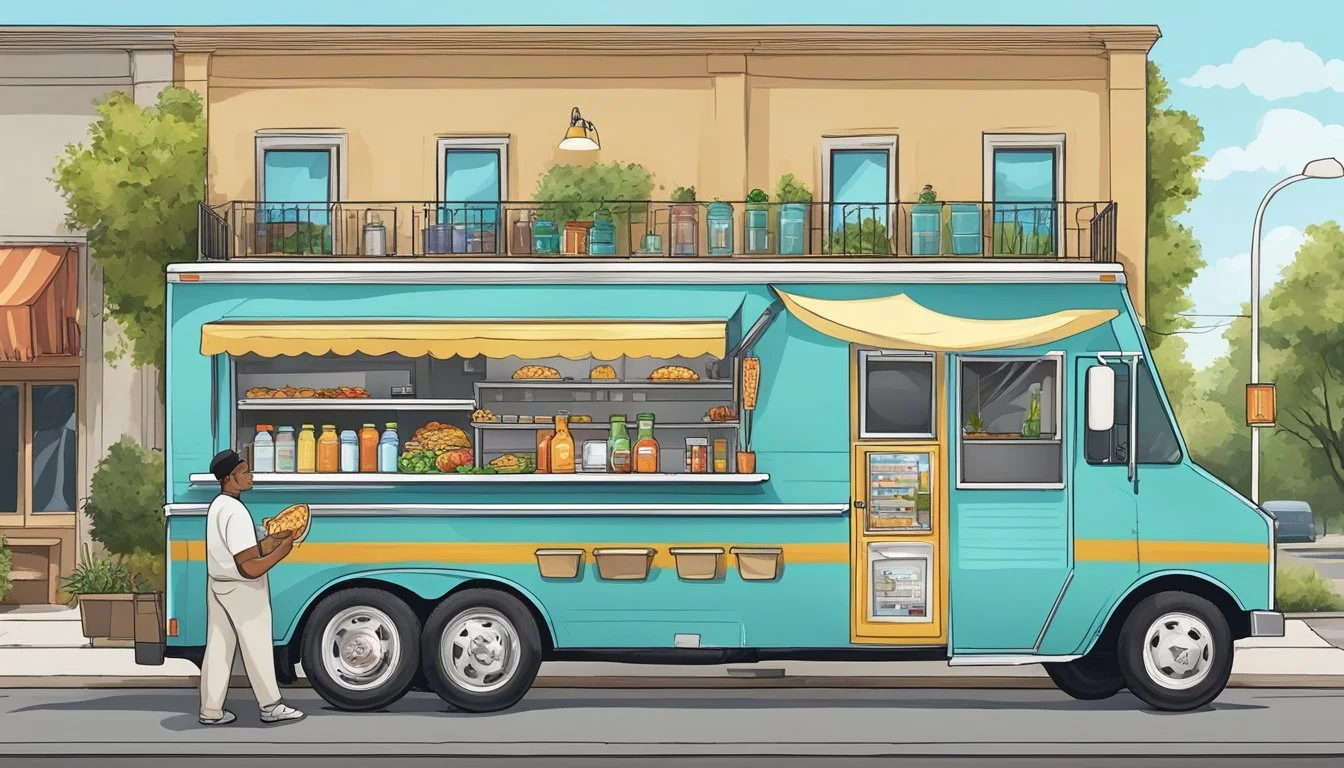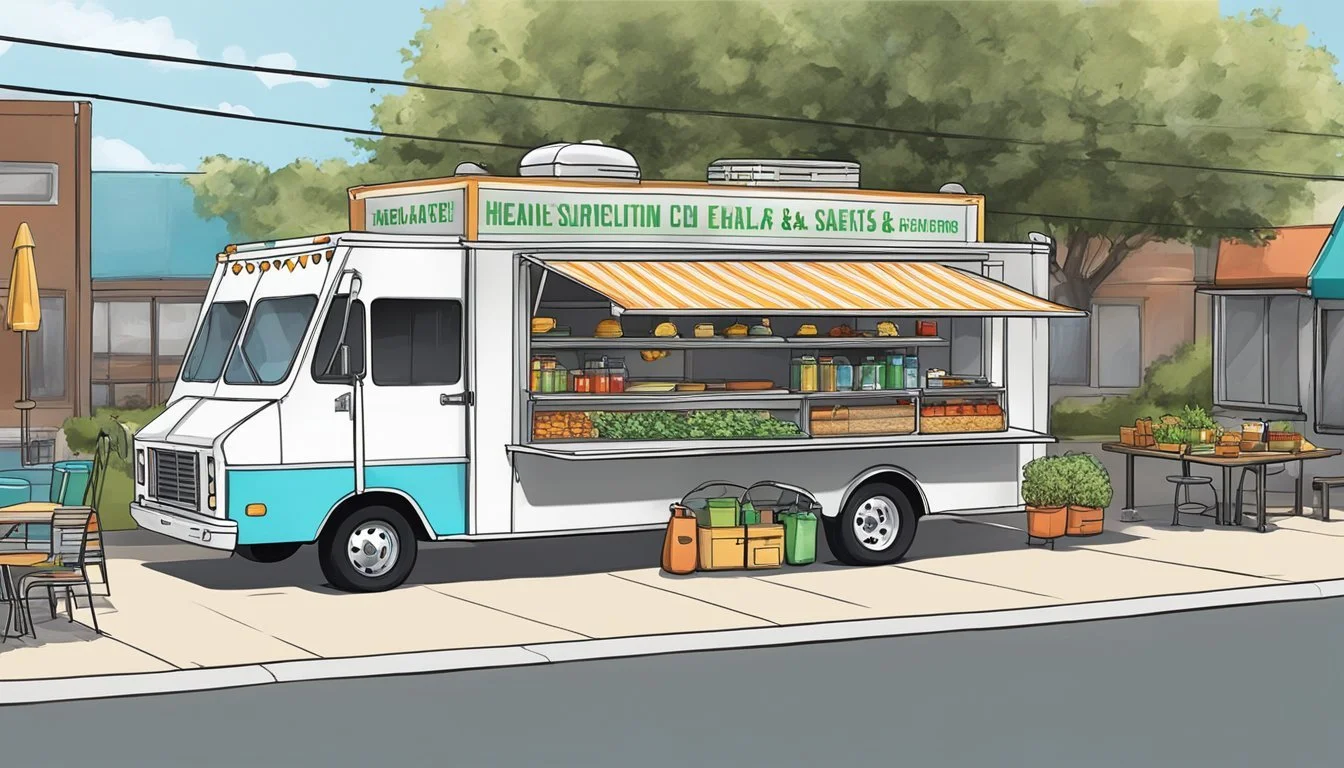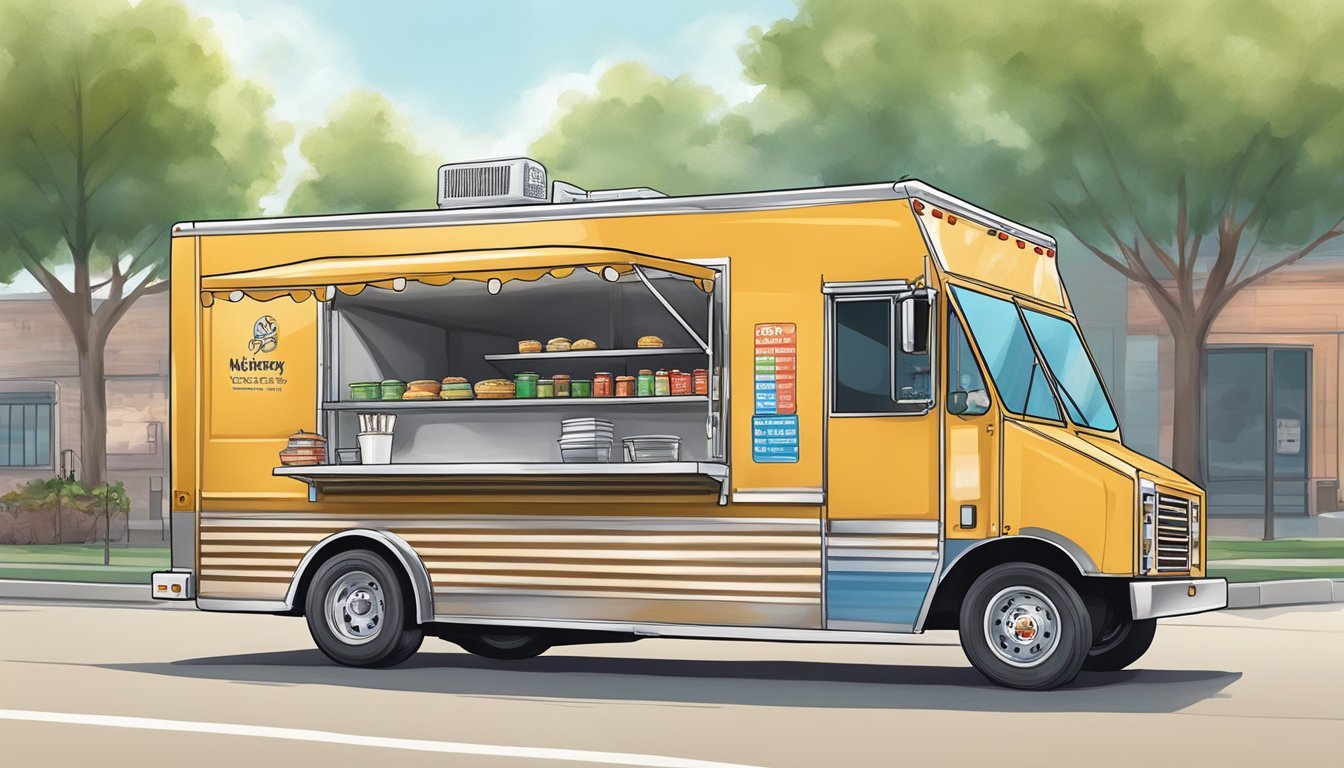Food Truck Laws McKinney, Texas
Navigating Regulations for Street Vendors
Operating a food truck in McKinney, Texas, involves adhering to specific regulations set forth by the city and state authorities. These laws are designed to ensure that mobile food vendors operate safely and maintain public health standards. McKinney has its own set of requirements for mobile food services, including permits, food safety, and vehicle standards, that must be met before hitting the road.
Food truck operators in McKinney need to navigate through inspections, permits, and food safety regulations, which can be as complex as creating their culinary delights. The city's ordinances demand regular checks, such as those from the Fire Marshal's office, to ensure adherence to safety guidelines for food trucks and trailers. Moreover, vendors should be familiar with the state-wide policies from the Texas Department of State Health Services, which encompass additional food establishment regulations influencing food truck operations.
Compliance with these regulations signals to customers that the food truck is committed to quality and safety, an important factor for success in the mobile food industry. Operators must consistently maintain their compliance with the health department's standards, including regular cleaning and sanitizing of their vehicles, proper waste disposal, and secure food storage practices. This diligence helps to protect McKinney's community and supports a thriving and diverse food truck scene in the heart of Texas.
Starting a Food Truck Business in McKinney
When embarking on the journey to launch a food truck business in McKinney, Texas, entrepreneurs must navigate through several legal requirements. These prerequisites are not only essential for compliance but also establish the business's operational foundation.
Business Registration and EIN
To begin operations, a food truck business must register with the appropriate local authorities. This process typically involves obtaining an Employer Identification Number (EIN) from the IRS, which serves as a federal tax ID. In McKinney, businesses need to contact the City of McKinney Health Compliance to ensure they meet all health and safety regulations.
Additionally, securing funding is a critical step. Food truck operators in McKinney may explore various financing options, including small business loans, to cover startup costs. It is also advised to have the business registered with the Texas Secretary of State and the Comptroller to fulfill state requirements.
Starting a food truck business in McKinney entails a thorough understanding of local codes and a structured approach to meeting these regulatory demands. Entrepreneurs should be well-prepared to address the details of business registration and secure proper funding to ensure a smooth start to their culinary ventures on wheels.
Local Ordinances and State Regulations
Operating food trucks in McKinney, Texas requires adherence to specific local ordinances and state regulations that are designed to ensure public safety and food quality. Navigating these laws is essential for all food truck operators within the city limits.
McKinney City Council Code
The City of McKinney maintains a set of Food Establishment Regulations that govern the operation of food trucks. These regulations encompass the adoption of state rules on food service sanitation and special provisions for mobile food units, food trucks, and temporary food establishments.
Texas Health and Safety Code
They are harmonized with the Texas Health and Safety Code which stipulates that food trucks must meet certain conditions during inspections. This includes operational equipment and proper vehicle insurance. State laws also require food trucks to comply with food safety and handling practices.
State Law Compliance
Food trucks operating in McKinney must not only comply with local ordinances but also align with Texas state laws. These laws are detailed in the Texas Food Establishment Rules and include requirements for business registration with the Texas Secretary of State and Comptroller. Additionally, inspection by a local Fire Marshal may be required for safety compliance.
Food Truck Operations
Operating a food truck in McKinney, Texas, requires strict adherence to local regulations to ensure safety and compliance. Entrepreneurs must navigate the complexities of permits, vehicle standards, and inspections to legally serve the community.
Permits and Licensing
To operate a food truck in McKinney, operators are required to obtain the necessary permits and licenses. The process includes applying for a mobile food vendor permit through the McKinney Fire Department and ensuring that all local zoning and health regulations are met. Obtaining these permits verifies that the food truck is a registered entity allowed to operate under McKinney's jurisdiction.
Inspections and Food Manager Certification
Regular inspections are a critical aspect of food truck operations. Trucks are subject to health and safety inspections by the city's health compliance officers. Furthermore, a certified food manager must be on-site during operating hours. This individual is tasked with overseeing food preparation to ensure it meets health codes and is responsible for upholding proper food handling procedures.
Vehicle and Cooking Equipment Standards
Food trucks must comply with specific vehicle and cooking equipment standards. The fire suppression systems, for instance, must be inspected twice a year, and appropriate fire extinguishers, like K-Class for kitchen fires, should be accessible within the vehicle. Cooking equipment needs to meet certain safety standards to minimize risks and provide an adequate environment for food preparation.
Health and Safety Requirements
In McKinney, Texas, food trucks must adhere to stringent health and safety regulations to ensure the well-being of both staff and customers. These regulations are in place to prevent foodborne illnesses and to maintain a sanitary environment.
Food Handler Training
Food handlers in McKinney are required to obtain certification that demonstrates their understanding of food safety practices. The City of McKinney Food Service Mobile Requirements stipulate that each food truck must have at least one certified food handler on-site during operation hours. This certification ensures that food handlers are knowledgeable about proper food storage, preparation, and service.
Sanitation and Facilities
The availability and condition of sanitation facilities in food trucks are key elements of McKinney's health regulations. Food trucks are mandated to have:
Handwashing Sinks: At least one handwashing sink is necessary for the food handlers with a continuous supply of hot and cold water.
Sanitation: Regular cleaning and sanitation of the vehicle are essential to prevent contamination. This includes the use of food-grade sanitizer for surfaces that come into contact with food.
Waste Facilities: Proper disposal facilities for both solid and liquid waste must be provided.
Toilet Facilities: If the food truck is operating in the same location for more than a certain number of hours, access to a toilet facility with handwashing amenities must be ensured.
McKinney's health code also requires that food trucks provide single-use paper towels or hand dryers near the sink for proper hand drying. These features are all in place to create a safe dining experience and are strictly monitored by health inspections.
Food Service and Menu Considerations
When launching a food truck in McKinney, Texas, proprietors must give critical attention to two pivotal aspects of the operation: the food service process and the menu configuration. Menu planning requires careful consideration to comply with local health regulations, and when opting to serve prepackaged food, additional standards come into play.
Menu Planning and Prepackaged Food
Menu Planning: Operators must design menus that not only allure the palate of McKinney's diverse patrons but also adhere to the City of McKinney's health compliance standards. Menus should showcase items that can be consistently prepared within the confines of the mobile kitchen while ensuring food safety and quality.
Prepackaged Food: If a food truck elects to offer prepackaged food, they must strictly follow packaging and labeling regulations as defined by Texas Department of State Health Services. This includes ensuring that prepackaged items are stored and handled to prevent contamination, maintaining a safe temperature, and providing proper nutritional labeling.
Zoning and Location Guidelines
When operating a food truck in McKinney, Texas, understanding the zoning laws and properly utilizing locations are pivotal. Compliance with these set guidelines ensures that the business operates within the legal parameters of the city.
Property Use and Food Truck Courts
In McKinney, food trucks must adhere to the property use guidelines that specify where they can operate. Designated zones allow food trucks to congregate in food truck courts, providing diverse dining options for consumers in a single location. It's essential for food truck operators to confirm with the City of McKinney's Mobile Food Vending that their vehicle is situated on appropriate property zoned for such use.
Special Event and Temporary Uses
For special events or temporary uses, food trucks in McKinney may require special permits. Operators should plan ahead to obtain any necessary permissions for these events, ensuring that their food truck aligns with the city's regulations for temporary vending. The Code of Ordinances in McKinney provides a framework for what is permissible during events, and how food trucks should operate within that scope.
Operating Logistics
In McKinney, Texas, the operation of food trucks is subject to specific regulations, particularly in terms of the hours during which they can serve customers and the requirements for operating at special events.
Hours of Operation
For food trucks in McKinney, the designated Hours of Operation are crucial for compliance with city regulations. Vendors are typically required to adhere to certain times of the day for their businesses to be operational. Although the specific permitted hours may vary, and can be subject to change, vendors need to stay up-to-date with these regulations to avoid penalties. For example, during special events, food trucks may be granted extended hours or may have unique time restrictions based on the event's schedule.
Getting a Food Truck Model Order
When aspiring to operate a food truck in McKinney, Texas, obtaining the appropriate model orders is crucial. These model orders provide a structured legal framework catering to the needs of a mobile food establishment while ensuring compliance with local health and safety regulations.
To start, operators should reference the Local Ordinance Registry and Model Orders and Ordinances provided by the Texas Department of State Health Services (DSHS). This document serves as a template for establishing a county or municipal retail food program in alignment with Chapter 437 of the Texas Health and Safety Code.
The key components that must be included in a model food truck order from McKinney, Texas, usually encompass:
Food truck specifications: Including the design and construction requirements to facilitate safe food handling.
Operational guidelines: Highlighting procedures for maintaining food temperature, hygiene standards, and waste disposal.
Person in Charge (PIC): The designated manager responsible for overseeing compliance during operation.
Vehicle Insurance: Proof of insurance is mandatory for operation.
Business Registration: Evidence of registration with Texas Secretary of State and Comptroller.
Food truck operators have to ensure they meet these fundamental criteria. Additionally, an inspection from the local Fire Marshal may be necessary to address fire safety concerns.
For the complete set of guidelines, the City of McKinney Food Service Mobile Requirements document should be reviewed to obtain a comprehensive understanding of the expectations and requirements for operating a food truck in McKinney. This entails adherence to city-specific ordinances and the integration of the Texas Food Establishment Rules (TFER) within their business model.
McKinney Specifics
In McKinney, Texas, food trucks and trailers are a thriving part of the local culinary scene. The regulations governing mobile food vending are specific and must be adhered to by all operators. These regulations are designed to maintain food safety and community standards.
The City of McKinney defines a 'vendor' as an individual involved in the business of mobile food vending. In cases where more than one person operates a single mobile unit, the term encompasses all individuals involved. Food trucks and trailers must comply with the Mobile Food Vending guidelines set by the city.
Permits: Issued semi-annually, with periods beginning on January 1st and July 1st.
Operating Locations: Specified by the city, with designated areas for food truck operation.
Inspections: Conducted for ensuring compliance with food safety and establishment regulations.
For operators, compliance includes adhering to the City of McKinney Food Service Mobile Requirements which detail permit requirements and operational timeframes. Permits, which are mandatory for operation, have six-month validity, either from January 1st to June 30th or from July 1st to December 31st, regardless of the issuance date.
The city also adopts the Texas Food Establishment Rules (TFER) with specific additions and deletions tailored to local needs. These rules cover all aspects of food, from storage to preparation, and are essential for maintaining public health standards in mobile food units and retail food establishments.
Moreover, McKinney has established regulations within its Code of Ordinances, focusing on providing safe and competent food handling in the city. This includes mandatory inspections of food establishments and relevant training for food handlers, thus ensuring the safety and well-being of consumers across McKinney.








